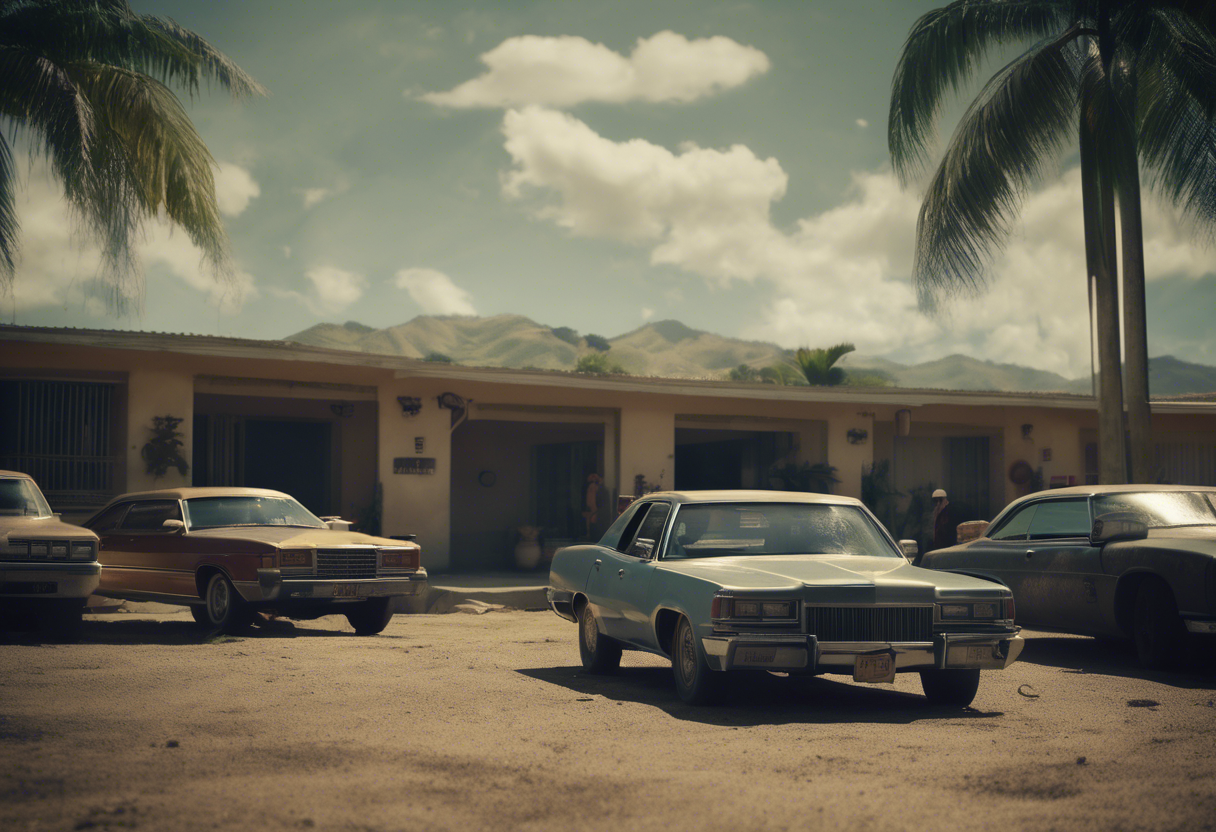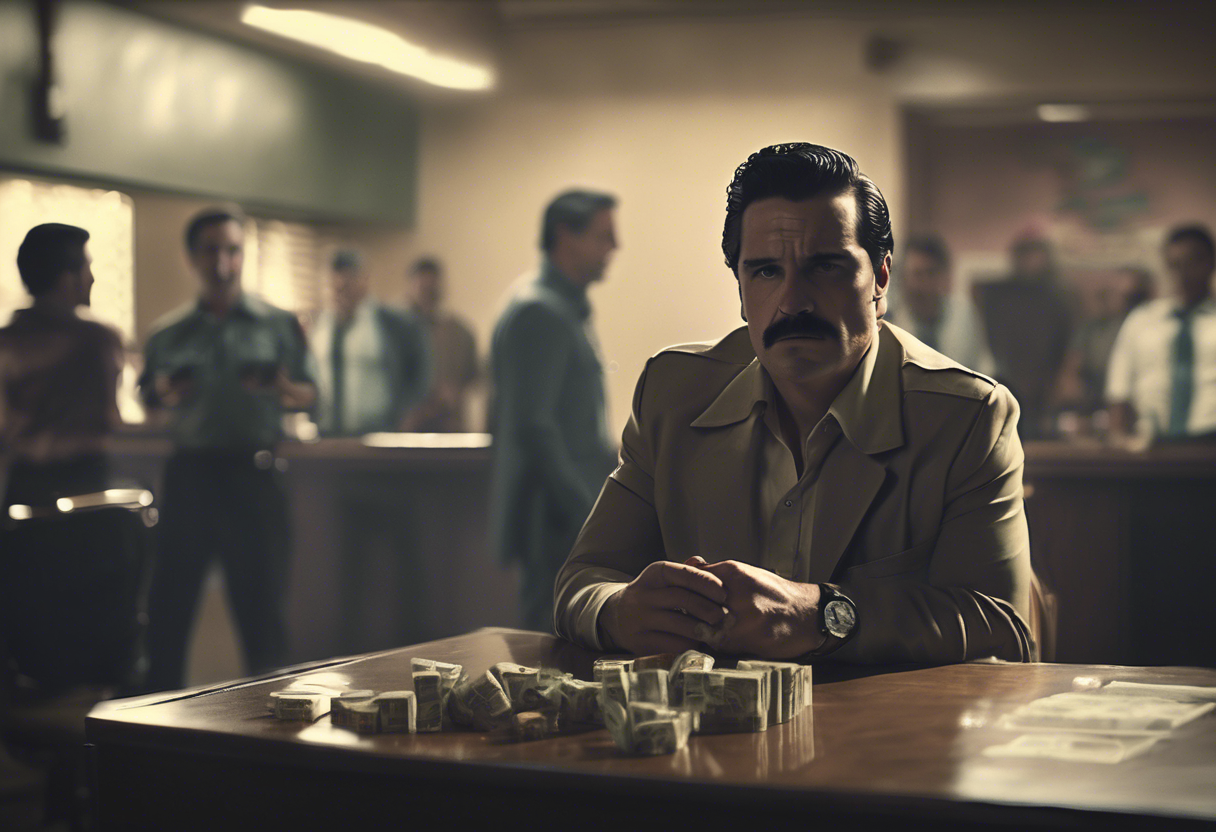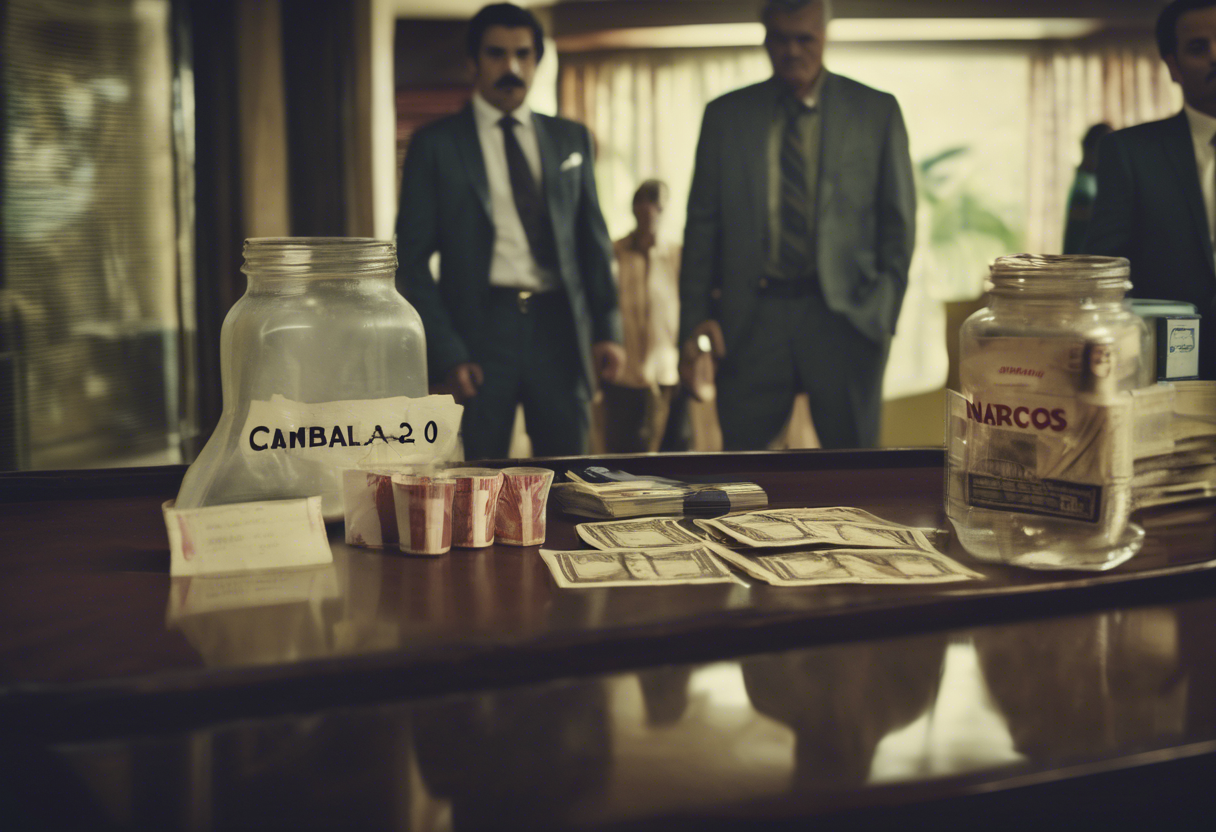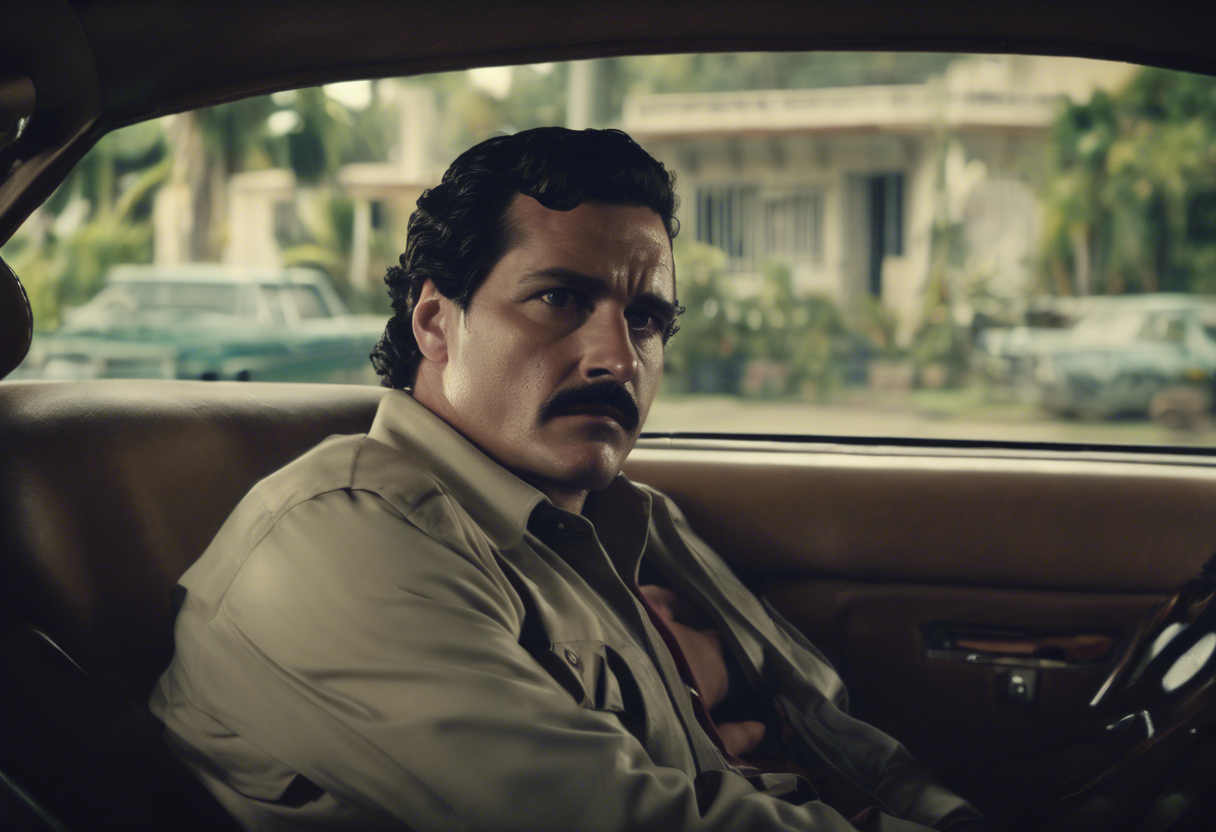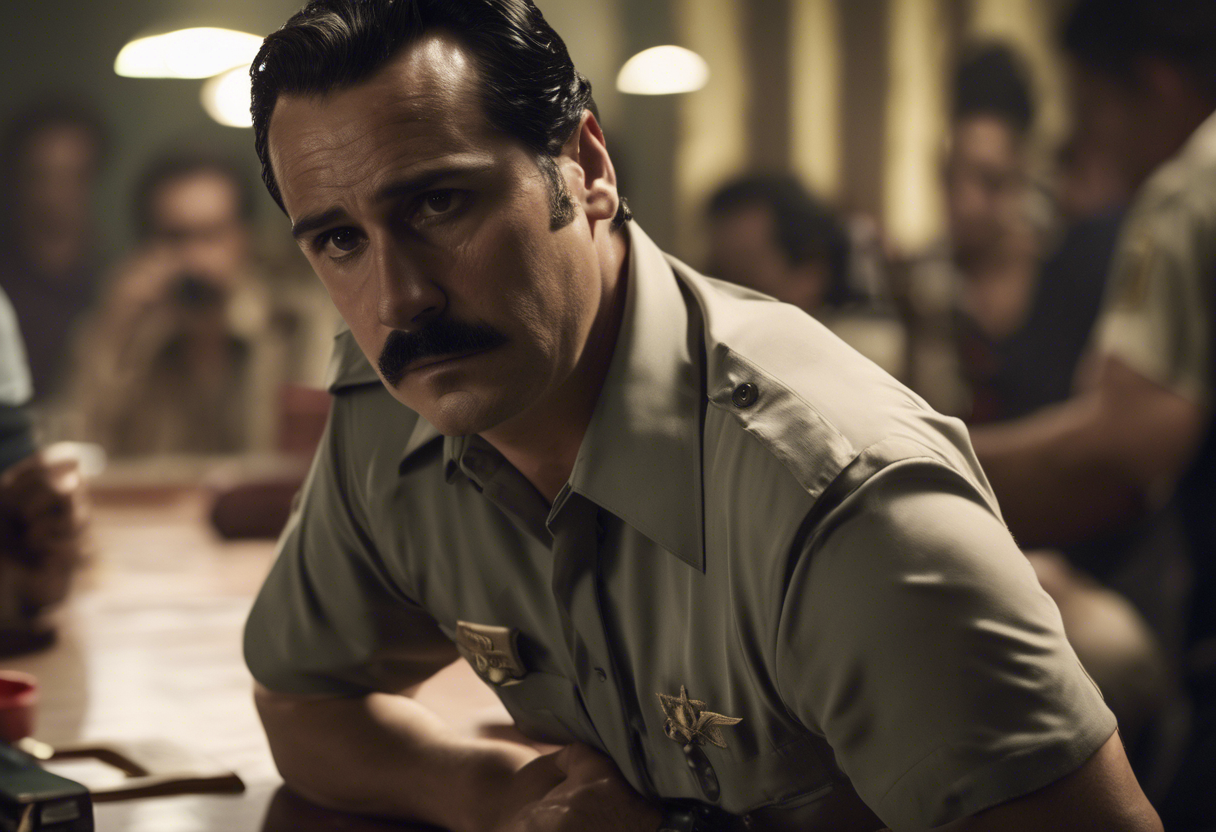Contents
Narcos Season 2: Episode 2 – Cambalache
Introduction
Narcos is a Netflix original series that chronicles the life and downfall of the notorious Colombian drug lord Pablo Escobar and the Medellín cartel. Created by Carlo Bernard, Chris Brancato, and Doug Miro, the show is known for its gritty realism, meticulous historical accuracy, and compelling narrative. Season 2, in particular, delves into the intense manhunt for Pablo Escobar and the escalating conflict between the cartel and law enforcement.
Episode 2 of Season 2, titled "Cambalache," is directed by Gerardo Naranjo and written by Chris Brancato, Carlo Bernard, Doug Miro, and Zachary Reiter. This episode stands out for its portrayal of the psychological toll of life on the run and the strategic maneuvers of both the cartel and the authorities.
Plot Summary
"Cambalache" opens with Pablo Escobar, the elusive leader of the Medellín cartel, navigating the challenges of life in hiding. Despite the relentless pursuit by the Colombian police and the DEA, Pablo manages to maintain a semblance of normalcy, even enjoying a refreshing shower in a secluded hideout. However, this tranquility is short-lived as the pressure from the authorities and the internal conflicts within the cartel begin to mount.
Tata, Pablo’s wife, is growing increasingly impatient with their nomadic lifestyle. The constant fear of being caught and the lack of stability are taking a toll on her and their children. In an effort to alleviate her frustration, Pablo arranges for her brother, Carlos, to be brought down from Miami. This move is a risky one, as it involves exposing another family member to the dangers of their situation, but it is a testament to Pablo’s desire to keep his family cohesive and content.
Meanwhile, the Search Bloc, a specialized task force dedicated to capturing Pablo, is undergoing a leadership change. Steve Murphy and Javier Peña, the DEA agents at the forefront of the operation, meet their new boss, who brings a fresh perspective but also new challenges. Javier, in particular, is struggling with his faith in the system as the hunt for Pablo becomes more chaotic and morally ambiguous.
President Gaviria’s reward offer for information leading to Pablo’s capture has sparked a wave of tips, many of which are false or misleading. Pablo, aware of this, decides to respond to the offer in a bold and provocative manner, further taunting the authorities and solidifying his public image as a defiant figure.
The episode also delves into the personal struggles of the characters. La Quica, one of Pablo’s loyal associates, is livid about the recent events and feels betrayed by some of the cartel’s members. His anger and frustration reflect the internal tensions within the cartel as loyalty is tested and alliances are questioned.
As the manhunt intensifies, the Search Bloc finds itself in increasingly dangerous situations. The team faces off against cartel members in tense confrontations, highlighting the high stakes and the personal risks involved in their mission. These encounters also underscore the moral complexities of the conflict, as both sides engage in tactics that blur the lines between right and wrong.
The setting of the episode shifts between the lush Colombian countryside, where Pablo and his family are hiding, and the urban landscapes of Medellín, where the Search Bloc is based. This contrast emphasizes the dual nature of Pablo’s life: the tranquility of his hideouts versus the chaos and violence of the city.
Throughout the episode, character developments are significant. Pablo’s actions reveal his strategic thinking and his ability to adapt to changing circumstances. Tata’s impatience and Carlos’s arrival highlight the human cost of their lifestyle and the sacrifices they must make. Steve and Javier’s interactions with their new boss and their continued pursuit of Pablo show their dedication and the toll their mission is taking on them.
The central conflict of the episode revolves around the cat-and-mouse game between Pablo and the authorities. Each side is trying to outmaneuver the other, with Pablo using his resources and network to stay one step ahead, while the Search Bloc relies on intelligence and determination to close in on him.
The narrative arc of "Cambalache" is marked by escalating tension and a deepening sense of urgency. As the episode progresses, the stakes become higher, and the characters are pushed to their limits. The episode concludes with a sense of unresolved tension, setting the stage for the next installment in the series.
Themes and Symbolism
"Cambalache" explores several key themes that are central to the broader narrative of Narcos. One of the primary themes is the psychological impact of living on the run. Pablo and his family are constantly under threat, and this pressure takes a significant toll on their mental health and relationships. This theme is symbolized through Tata’s growing impatience and the efforts made to bring Carlos to her, highlighting the human cost of their lifestyle.
Another significant theme is the moral ambiguity of the conflict. Both the cartel and the authorities engage in actions that are morally questionable, blurring the lines between good and evil. This is symbolized through the tactics employed by both sides, such as the use of informants and the execution of those deemed traitors.
The episode also touches on the theme of loyalty and betrayal. La Quica’s anger and the internal tensions within the cartel reflect the challenges of maintaining loyalty in a world where trust is a luxury. This theme is symbolized through the various betrayals and suspicions that arise among the cartel members.
Cultural Impact
"Cambalache" was well-received by audiences and contributed to the overall cultural impact of Narcos. The episode’s portrayal of the cat-and-mouse game between Pablo and the authorities resonated with viewers, who were drawn into the intense and suspenseful narrative. The episode has been referenced in various forms of media, often as an example of the show’s ability to blend historical accuracy with compelling storytelling.
Critical Reception
Critics praised "Cambalache" for its tense and engaging storyline, as well as its strong character development. The episode was noted for its ability to balance action and drama, keeping viewers on the edge of their seats while also delving into the personal struggles of the characters. Some critics highlighted the moral complexities of the episode, praising the show for its nuanced portrayal of the conflict.
Legacy
"Cambalache" remains a significant episode in the Narcos series, contributing to the show’s lasting impact on television drama. The episode’s focus on the psychological and moral aspects of the conflict has influenced other crime dramas, which often explore similar themes. The episode’s tension and suspense have set a high standard for future episodes and series, making it a benchmark for storytelling in the genre.
References
- https://ew.com/recap/narcos-season-2-recaps-and-study-guide/
- https://narcos.fandom.com/wiki/Cambalache
- https://www.pogdesign.co.uk/cat/Narcos/Season-2/Episode-2
- https://www.metacritic.com/tv/narcos/season-2/episode-2-cambalache/
- https://www.refinery29.com/en-us/2016/09/120960/narcos-season-2-recap-episodes-synopsis


